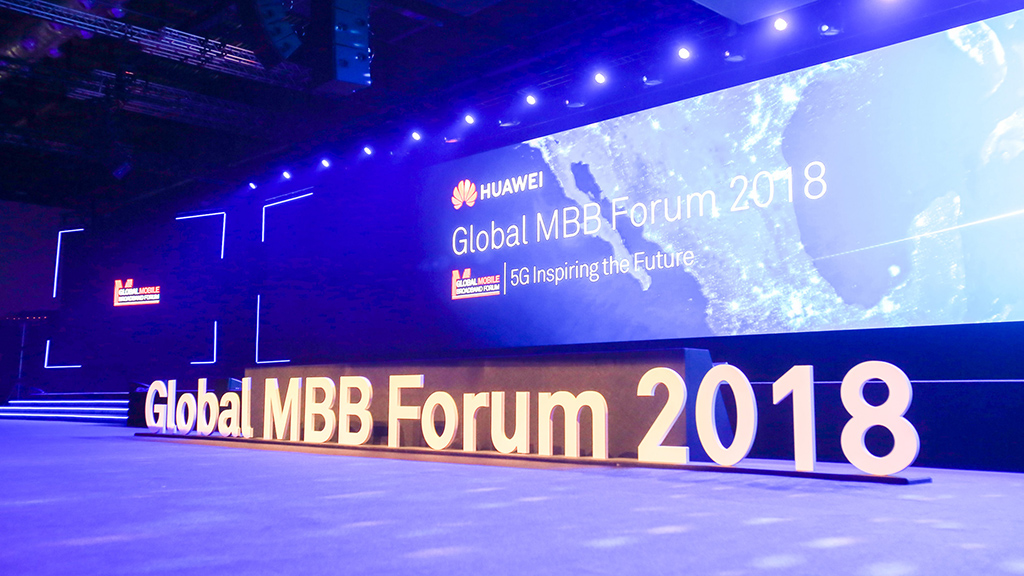Huawei urges operators to trust its 5G vision as it shifts 10,000 base stations
Huawei Chairman Ken Hu details 'Cloud X' vision

Huawei has told operators it expects 5G to change the world of technology and business and urged customers to trust its roadmap for innovation as they begin their rollouts.
Ken Hu, rotating chairman of Huawei, used his keynote speech at the Huawei Mobile Broadband Forum (MBBF) in London to detail the Chinese manufacturer’s vision of 5G and reveal it has shipped more than 10,000 5G base stations to customers around the world.
Despite moves in the US and Australia to freeze the company out of 5G network deployments, Huawei will be a crucial supplier for many operators – including the UK, where it used by BT, Three and Vodafone.
Huawei 5G progress
“I believe 5G will be another technology revolution,” he told the audience. “It will help us to trigger many changes in other technologies and business.
“Generally speaking, the program of 5G deployment is much faster than expected 12 months ago. From every angle 5G is ready: standards are ready and end to end solutions including network equipment and device are ready too. Commercial deployment has started in countries like the UK, Korea and Middle East.”
Hu added that 5G networks would be stronger in terms of coverage and capacity, simpler to build, more intelligent and more secure. The gigabit speeds and ultra-low latency would be the key characteristics in facilitating the new applications as the network becomes a platform.
“With 5G, we will go beyond the pipe and connectivity will become a platform. A pipe has limitations, but the network can expand anywhere. [Today] most things are offline by default but with 5G. I believe it will be very difficult to not be online. This is a big change.”
Sign up to the TechRadar Pro newsletter to get all the top news, opinion, features and guidance your business needs to succeed!
This shift, he argued, would see the expanded influence of the cloud and new device form factors that create new user experiences which will be seamless across multiple devices and environments – both in the digital and physical worlds.

Cloud X
Huawei is calling the combination of 5G, the cloud and smart devices ‘Cloud X’.
“Cloud X will maximise the capability of all three and we believe there is big market potential,” he elaborated, citing devices like the Huawei Mate 20 as evidence.
“With 5G, there will be real time transfer between the device and the cloud – no lag at all – therefore storage will be the same for both of them. This means we can get the computing power everywhere that is needed, and we can get AI functionality at different levels, from the device to the network to the cloud.
“Devices will be redefined by 5G and I hope we will see many more form factors. The hardware and software will be more structured so we can easily add the functionality to anything, just like Lego.
“We believe the UX will change too. The existing limitations of the network and the device means the experience is pretty fragmented. When we go from our home to the car to the office to the airport, our experience doesn’t really travel with us. In the future, with 5G, with a single digital ID, your network, service and applications will travel with you.”
“We believe this seamless experience will be fundamental to converging the digital world and physical world.”
Innovation partner
Hu concluded by discussing the potential of Fixed Wireless Access (FWA) broadband and the barriers that still persist in 5G deployment. These include the global release of harmonised spectrum and local regulations that increase the cost of rollout.
“Site resource is a big barrier to 5G,” he said. “It accounts for 60-80 per cent of the total cost of deployment – that’s a lot. We hope governments doe more, like open up public resources and encourage carriers to share infrastructure.
“We believe that 5G will contribute a huge benefit to our society and it would be great if all the stakeholders could come together to overcome these barriers.”
- Here are the best mobile phone deals for November 2018
Steve McCaskill is TechRadar Pro's resident mobile industry expert, covering all aspects of the UK and global news, from operators to service providers and everything in between. He is a former editor of Silicon UK and journalist with over a decade's experience in the technology industry, writing about technology, in particular, telecoms, mobile and sports tech, sports, video games and media.